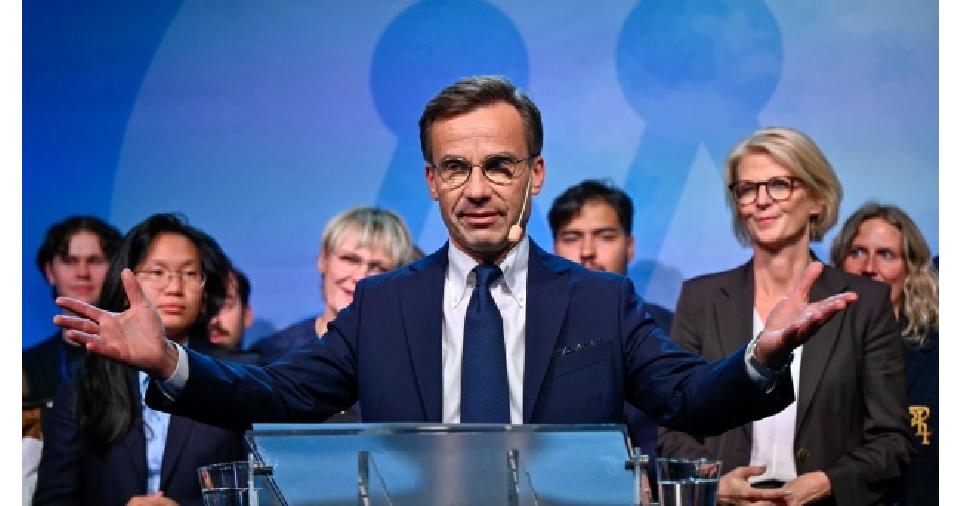We are confused. In the New Year's week, Thomas Borchert wrote in an opinion article in the left-wing Frankfurter Rundschau that "Orbán's friends" will take over the management of Europe for six months from the first of January, because Sweden took over the presidency of the European Union.
Borchert said that Viktor Orbán must be happy about this, because one of the parties in the Swedish government coalition, the SD
"he personally considers himself a friend of the Hungarian politician and supports his authoritarian system".
Moreover, the author claimed that the Sweden Democrats are a party made up of Nazi groups (!), which became the most popular in the last Swedish election, so that the Swedish Prime Minister Ulf Kristersson (chairman of the Moderate Party within the coalition) is very dependent on them, whom "at any time they can fail you". There is some truth in this, since out of the 347 representative mandates, the candidate of the right-wing bloc received only three more than the left-wing candidate.
It is certain that, in addition to the Swedish voters who voted for change, we were also happy with the victory of the right-wing bloc and assumed that after the new Italian government, we could gain new supporters, even friends in the circles of the Swedish political elite.
But it seems we hoped in vain. Even though Ulf Kristersson said in the Riksdag in Stockholm in December that "We will protect common European interests and be HUMBLE in the face of the diversity of the member states", he even then added that "This sometimes requires LIMITATION - mediation and moderation instead of preaching."
We got an answer to who Kristersson wants to "restrict" this week. As the Spanish-language newspaper ABC wrote, the aim of the Swedish presidency is to "act quickly and decisively" in managing the adoption of new aid packages for Ukraine and new sanctions against Russia, which must preserve the unity of the 27 member states and fight for this with Hungary's "national-populist" government.
However, according to the article published in Mandiner, the Swedish EU presidency does not "must fight" but "cooperate" with Hungary.
We hope that the latter is to be expected, especially since NATO membership of the Swedes (and Finns) also depends on Hungary. Last year, it was said that the Parliament would vote on this on December 7. This, according to Viktor Orbán's announcement, will take place at this year's first parliamentary session. The other topic of the EU presidency in which tensions are expected with the Swedes is precisely the issue of subsidies intended for Ukraine.
The Hungarian government saw very well that once we go into joint borrowing of 18 billion euros, then from then on it will ask for more and more loans for the Union, for Ukraine. We won the first battle with the Hungarian veto, but the subsidy war is expected to last longer this year.
Londondaily wrote some additional details about the Swedes' plans Accordingly, they would extend the duty-free status for Ukrainian products entering the Union, and it might even be made permanent. Sweden also plans to speed up trade talks with the EU and Mercosur countries, Brazil, Argentina, Uruguay and Paraguay. Now that Luiz Inácio “Lula” da Silva is back in office in Brazil, the race is on for the two blocs to agree on a new protocol that will strengthen the deal's green credentials and improve conditions for Brazilian industry.
The Swedish presidency could also push for EU countries to ratify a new agreement with New Zealand, renew agreements with Chile and Mexico, and try to boost negotiations with Australia, Indonesia and India.
Another area where the Swedes hope to make progress is joining the EU's single market for developing countries. This would benefit Swedish-based retailers such as fashion company H&M, whose clothes are manufactured in Bangladesh. ( Obviously for starvation wages - the ed. ) But not only they want this, but also free trade sympathizers such as the Netherlands or the Baltic countries, who couldn't wait for a like-minded nation to stand up for their interests...
Featured image: Bloomberg













